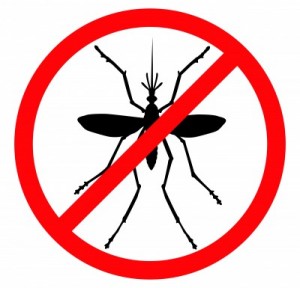In 2009 my husband, seven month old son and I moved to Cairns in far north Queensland. Our arrival corresponded with the largest outbreak of dengue fever (a potentially fatal mosquito spread infection) the far north had ever seen. Dengue is not always present in Cairns and the authorities instituted emergency procedures in response to the outbreak. In this setting it was not difficult to make the leap of understanding from viewing the mosquito as a simple pest (as I had when living in Melbourne for example) to a significant health risk.
Mosquitoes may potentially transmit a range of dangerous infections including among others, malaria, dengue fever and Japanese encephalitis. If you are visiting tropical locations you are more likely to encounter mosquito spread illness however this is not always the case. Ross River Virus is spread by mosquitoes and is common in temperate New South Wales, Australia. Since 1999 there have been more than 30000 reported cases of West Nile virus, a potentially fatal mosquito spread infection reported in 48 of the 50 United States of America. Being well informed of the potential for mosquito spread infection before travelling will assist you to protect yourself and your children. Your pre-travel health visit will play a vital role here. The mosquitoes that spread different diseases behave differently. For example, the mosquitoes with spread dengue are day biters, but malaria spreading mosquitoes are more active between dusk and dawn. If your pre-travel health visit reveals you will be at risk of mosquito spread infections ask your doctor when the mosquitoes which spread that illness are most active. If your doctor doesn’t know a quick check on the internet should reveal the answer. This will help you determine when you should be most vigilant in protecting yourself and family against bites.
Unfortunately, children are more likely than adults to suffer severe complications of many mosquito spread infections such as dengue, malaria and Japanese encephalitis.
Activities which prevent mosquito bites include:
- Wearing long trousers and long sleeved light coloured clothing.
- Appling mosquito repellent containing DEET (diethyltoluamide or diethylmethylbenzamide) or repellents which contain picaridin every 4 hours (or earlier if you or your children start getting bitten).
- Always check the label of any repellant you purchase to ensure that the active ingredient and concentration is safe for the age of your child.
- Using screened accommodation.
- Using insecticide (permethrin) impregnated mosquito nets in unscreened accommodation.
- Application of repellent surface spray to areas that may harbor mosquitoes (e.g. under beds, behind furniture, within closets) if travelling to a dengue area.
- Depending on where you are going and the type of accommodation you will be staying in consider treating clothes and shoes with insect repellent (permethrin).
The United States Center for Disease Control and Prevention recommends using repellent on any child older than 2 months. For those infants less than 2 months extra precautions are necessary such as draping the infant’s carrier/cot/stroller with mosquito netting. You should apply the repellant to your infant or toddler, don’t let them do it themselves. Be careful not to apply the repellant to your baby or toddler’s hands (and feet if they tend to make their way into little mouths).
A special word about concerning malaria.
- Malaria is one of the leading causes of infant and toddler deaths world-wide. It is wisest to postpone travelling to any area where malaria is present until after your youngest child is two.
- Prudently protecting yourself and family is essential if travelling to areas of potential malaria spread. This includes taking preventive medication from a short time before your travel, to a short time after your arrival home, depending on the medication.
- It is important that you understand the directions your doctor gives you in regards to taking this medication.
- While you are travelling, if you become unwell seek medical attention immediately. Symptoms that may indicate malaria include fever, chills, a flu like illness, headache, vomiting or diarrhea.
- Finally, many mosquito spread infections do not lead to symptoms until after people have returned home. In some instances malaria may not present with symptoms until a year after the person was bitten. If you, or your child develops signs that may be a result of mosquito spread infection (e.g. fever or flu like symptoms) after returning home it is important that you see a doctor immediately. In addition tell your doctor that you have been to whichever region you have visited. In the case of malaria, the earlier that treatment is commenced the higher the chance of surviving the infection.




Pingback: Health Safety | Journeys of the Fabulist
Pingback: Gro Easter Giveaway | Bubs on the Move